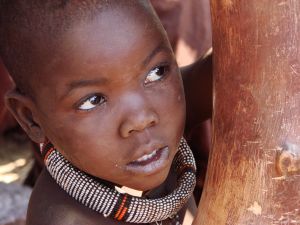
African Entrepreneurs: Creating Opportunities For Success
Europe and the rest of the world must stop looking at Africa as a charity case and start working with African entrepreneurs as peers and partners
The solution to African development must be African and internally generated. However, it will need support from the developed world, mostly in terms of knowledge and training, as well as investment. This was the consensus of a panel at Net Impact’s Doing Good, Doing Well 2009 European conference held here.
"We are not discarding government-to-government aid. However, companies need to learn how to be more productive and efficient in their business-to-business transactions," says moderator Lluis Renart, an assistant professor of marketing at IESE business school, who has been going to Africa over the past four years to train university professors in business case writing.
He was impressed by what he saw in the field: highly motivated entrepreneurs, capable of identifying the needs around them and creating a viable business out of nothing which is highly adapted to Africa’s needs and environment. However, there were a lack of methodology and coherent business plans.
Their business processes could be improved by refining their ideas, drafting business plans, further improving and refining their ideas after the business has been launched and is operating, to help it further grow, develop and consolidate, Renart told INSEAD Knowledge on the sidelines of the Net Impact 2009 conference.
“One can’t help but think that if several thousand businesses had processes like this in Africa, the continent would make a major stride forward – assuming, of course, that their good work is not destroyed by war, sickness, corruption, or lack of sufficient infrastructure,” he says.
How can Europe and the developed world help?
Malik Bakayoko, Operations Counsel for North, West and Central Africa with the Coca-Cola Company says that although the developed world has contributed a lot to the development of Africa, some Africans still consider them as “devils who are the root cause of Africa’s problems.”
“Africans must stop thinking of themselves as victims and work towards the development of the continent using aids that are coming into Africa,” Bakayoko says. “And Europe and the rest of the world must stop looking at Africa as a charity case and start working with African entrepreneurs as peers and partners.”
Foreign investors should not tolerate a lack of responsibility on the part of African entrepreneurs, he says. “Africans need to understand that the business world has its rules and that commitment must be correctly and timely fulfilled. Any lack of responsibility should be sanctioned according to business rules and amicable settlement, which is standard in Africa - even in a case of extreme breach of contract (that) should be the exception.”
Noel de Villiers, founder and CEO of Open Africa, feels that politically, Europe tends to be too soft on criticism where it is due and this filters down to other levels as well, such as the management of aid.
“Africa is weak in terms of governance and outsiders let us get away with this too easily,” he says.
Whereas poor, indifferent, and lax management is at the root of many of Africa’s problems, he feels that the history of colonialism has resulted in Europeans being reluctant to talk straight and be blunt about the need to deal with these weaknesses, fearful of being branded racist.
“We need all the help we can get from Europe, literally across the board in terms of finance, investment, expertise, development and exposure to best practices and marketing,” he adds.
Emphasis at which level?
To achieve social and economic development and successful entrepreneurship models, should emphasis then be placed at the individual, family or community level?
De Villiers believes that everything starts with individuals who have the will to make a difference, adding that he “looks for stars, and tries and empower them.”
It’s just a matter of style and approach, he says, as there are others who focus on extended families and whole communities. “It is much easier for what we do to concentrate on individuals who have shiny eyes and a fire in their gut. My belief is that if you get them going, they will get the community going,” he says.
Bakayoko, on the other hand, says that “it’s a big mistake to encourage individualism in Africa,” and refers to “the negative consequences that individualism has brought to the West.” He cites emerging economies such as India, Indonesia and Malaysia where the sense of community has strengthened and accelerated their development.
Community is an African reality that African entrepreneurs cannot easily get away from; it has to be taken into account, says Bakayoko.
The African diaspora
Africans living overseas send money home regularly to support their extended families. According to United Nations estimates, total remittances to Sub-Saharan Africa reached more than 20 billion dollars in 2006, but the actual numbers might be much higher as these numbers include only official transfers.
Even so, Bakayoko says entrepreneurs in Africa are getting “very little support from the African diaspora.”
Rather than just being an unfruitful capital disbursement, Bakayoko proposes that perhaps three to five members could pool part of the money they receive each month to invest in small family businesses.
The diaspora does however also provide funding for hospitals and schools. Bakayoko quotes Professor Vijay Mahajan of Wharton Business School in his book ‘Africa Rising’ that “the African diaspora is a huge market for African entrepreneurs for goods from Africa and goods designed for Africans.”
Bakayoko believes that if remittances are institutionalised like the Moroccan Bank for the Diaspora, the money may be one of Africa’s most valuable natural resources and drivers of wealth.
[This article is republished courtesy of INSEAD Knowledge, the portal to the latest business insights and views of The Business School of the World. Copyright INSEAD 2024]





